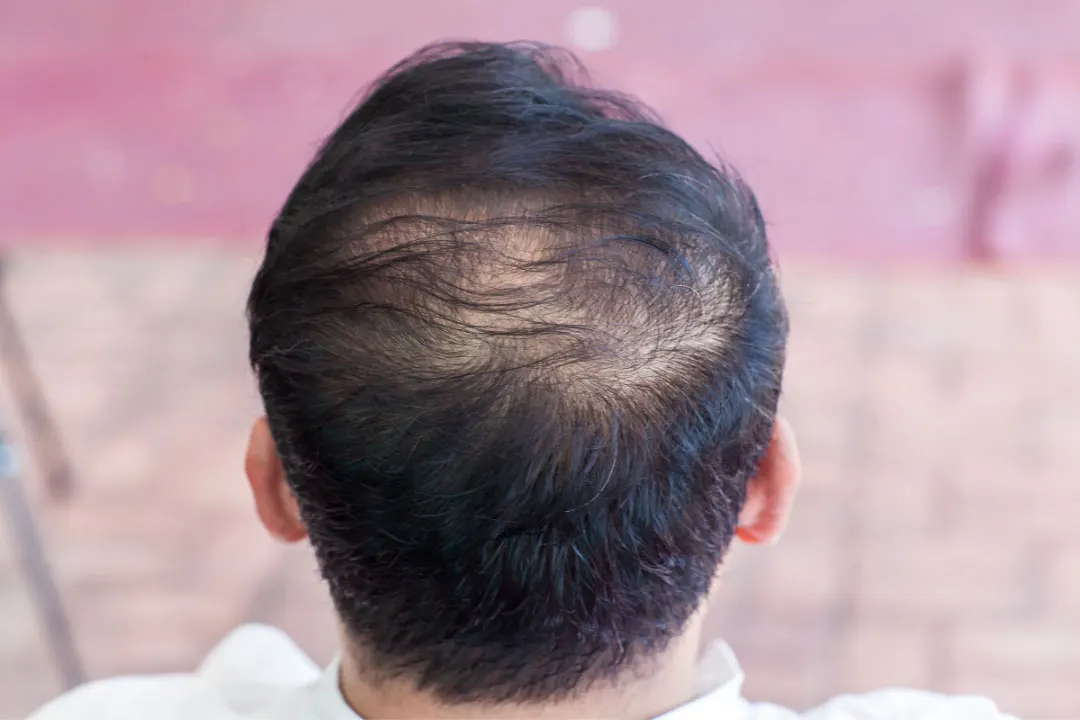The health market is saturated with drug products claiming to treat or reverse thinning hair in men; however, the unpleasant side effects and frequent need for lifetime usage of these products could be a serious consideration. We’ll discuss the pros and cons of using drugs for hair loss, and explore a viable alternative.
There are many reasons why people begin to lose their hair, and different hair loss therapies may be more or less effective depending on those reasons. Most commonly, hair loss is hereditary and proceeds according to the symptoms of male or female pattern baldness. In other cases, changes in our bodies’ hormonal makeups can cause hair loss, whether those hormonal changes are due to pregnancy, menopause, thyroid disease, or certain medical therapies. Some people lose their hair due to a condition called alopecia areata, in which the immune system attacks hair follicles. Still others experience hair loss after prolonged stress or a traumatic event.
Whatever the cause, hair loss can be harmful. It’s associated with a litany of negative changes in mood, self-esteem, and social interaction, and as a result, many men throughout history have sought to avoid losing their hair. The ancient Greek physician Hippocrates prescribed a tonic of opium, horseradish, and pigeon droppings. Several centuries later, in Victorian England, many quacks advertised cold tea as a cure for baldness.
By the late 20th century, however, two more modern therapies for hair loss came to be: Finasteride and Minoxidil. These have since been forwarded as the primary cures for thinning hair in men, and are still commonly used today. However, they’re not without their drawbacks, which are important to consider before embarking on a regimen of either drug. The following are some of the pros and cons of using drugs for thinning hair in men.
You May Also Like:
5 Great Reasons to Try Stem Cells for Hair Growth
Finding The Best Trace Mineral Supplement: 6 Great New Supplement Products You Can Try
The Pros and Cons of Using Drugs for Thinning Hair in Men is an original (Health11News) article.
Pros of drugs for thinning hair in men
The primary argument in favor of the use of drugs for thinning hair in men is that they do, indeed, work. They’ve been used for decades for that reason exactly; Minoxidil and Finasteride can help men regrow and maintain their hair. One 2015 study combined the two drugs to measure their combined effects, finding that over 84% of the men who applied Minoxidil and Finasteride topically were able to maintain a healthy hair density over a period of two years. These drugs prescribed for thinning hair in men do work, in the grand majority of cases, effectively and as advertised to prevent hair loss.
Another pro of drugs for hair loss in men is that they represent a more accessible and less invasive option than another common form of hair growth therapy: hair transplants. In a hair transplant, a surgeon takes healthy hair follicles from one area of the head and moves them to areas where hair is receding. Many people pursue hair transplants instead of drugs because a transplant only needs to be performed once, with permanent results.
However, hair transplants require invasive surgery, which drives many to try drugs for thinning hair in men instead. There’s also a limited window in which hair transplants may be effective; the operation can only be performed if some follicles are still healthy. Drugs for thinning hair in men don’t have these same drawbacks, which is why many prefer them to hair transplants.
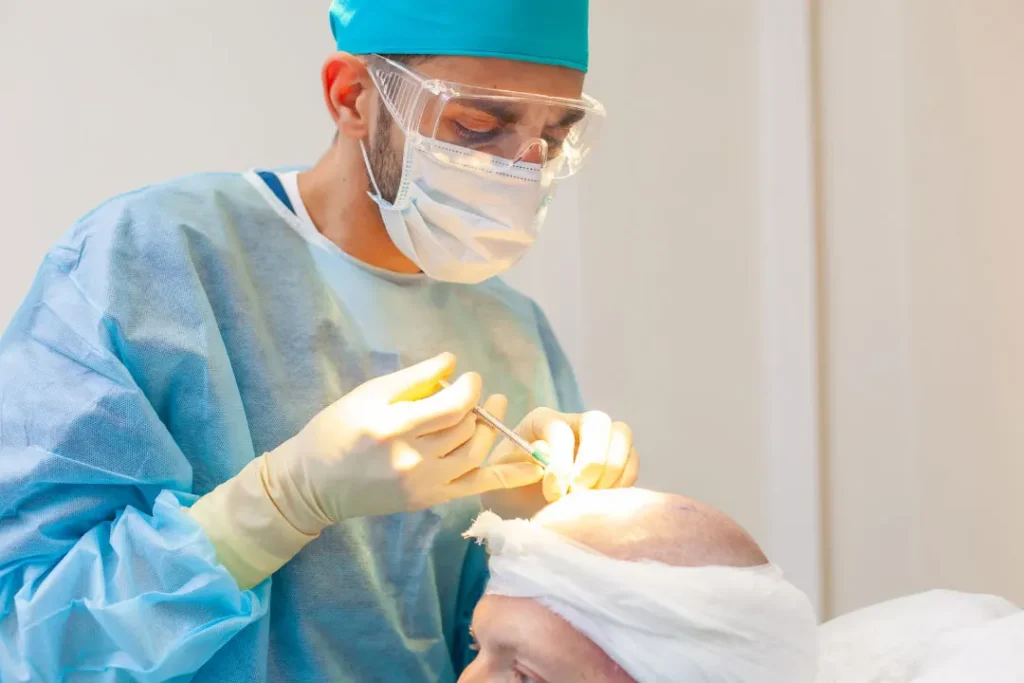
Cons of drugs for thinning hair in men
The major con of using drugs for thinning hair in men, however, is their negative side effects. We’ll look at Minoxidil first. Commonly sold under the brand name Rogaine, Minoxidil arrived on the market in the 1950s and has been one of the most popular treatments for hair loss ever since. Minoxidil is usually applied topically to the affected areas of the scalp. Itching and scalp redness are some of the most common side effects; however, they’re not the only ones.
Minoxidil can cause acne, scalp burning or scaling, and in some cases, even increased hair loss. Investing in Minoxidil to treat hair loss can actually result in your losing more hair more rapidly, going against the very reason you decided to try it in the first place.
Finasteride was invented in the 1980s as a treatment for urinary retention caused by benign prostatic hyperplasia. Its effects on hair growth, however, eventually made Finasteride one of the most common drugs for thinning hair in men. Unlike Minoxidil, it’s not applied topically; it’s usually a once-daily pill, and often taken with food. Finasteride is usually prescribed for thinning hair around the temples, as it’s usually not as effective on other types of hair loss.
Sexual dysfunction is the most common side effect of Finasteride; many experience an inability to maintain an erection, a diminished sex drive, and sometimes a feeling of depression. However, there are also more serious side effects of finasteride: Some experience serious swelling, breast enlargement, rashes and itching, or erratic changes in weight. There is some evidence that taking Finasteride can increase the risk of developing prostate or breast cancer.
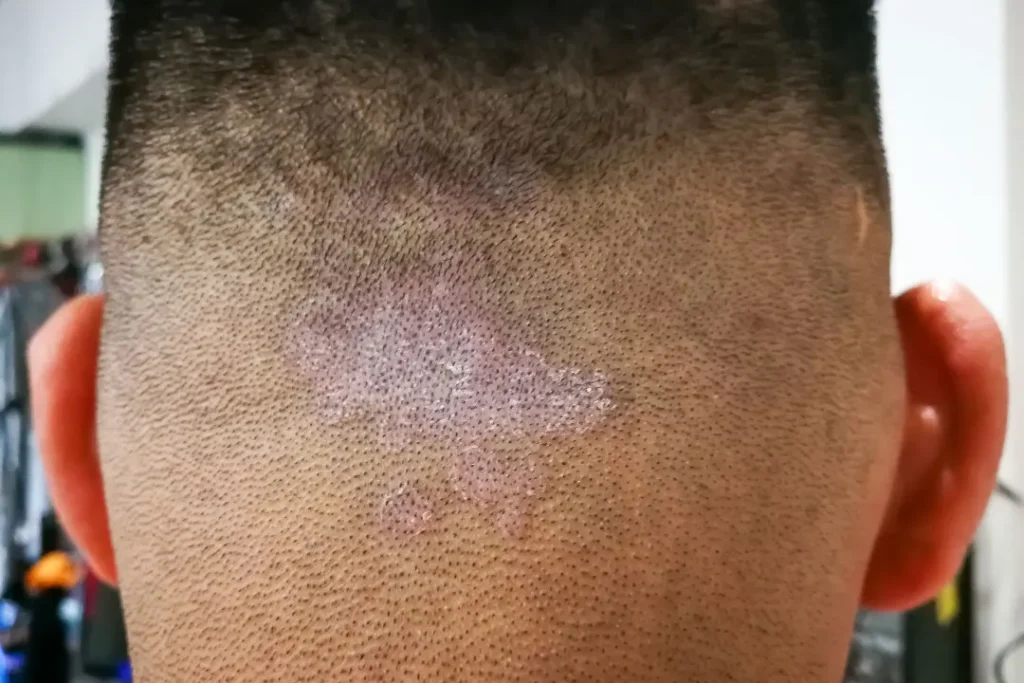
An alternative to drugs for thinning hair in men
Minoxidil and Finasteride may be effective drugs for thinning hair in men, but their side effects are causes for concern. However, there is an alternative treatment – besides hair transplants – that may be just as effective, if not more so, without the same downsides. Studies have shown that hair loss may be related to the death of follicular stem cells, which are responsible for signaling the need for hair growth to healthy follicles.
As people age, these stem cells migrate out of the specialized environment of the follicle and die, leaving the follicles to close up. Stem cell-based therapy can mitigate this and may be a preferable alternative to drugs for thinning hair in men.
One exemplary line of stem cell-based hair products is More Hair Naturally. Combining stem cell therapy with treatments for other potential causes of hair loss, including dihydrotestosterone inhibitors and probiotics, their kits comprise complete and comprehensive drug-free programs for natural hair loss without the side effects of Finasteride and Minoxidil. Best of all, like hair transplants,
More Hair Naturally is designed to be used temporarily for permanent solutions; once the follicles are healed, you can stop using it. According to CEO Maryah Shain, traditional hair loss therapies are “not really handling the issue. We started studying medical journals from around the world, researching stem cells and probiotics, and we found that they were producing results.” More Hair Naturally is an innovative, effective, drug-free solution to thinning hair in men.
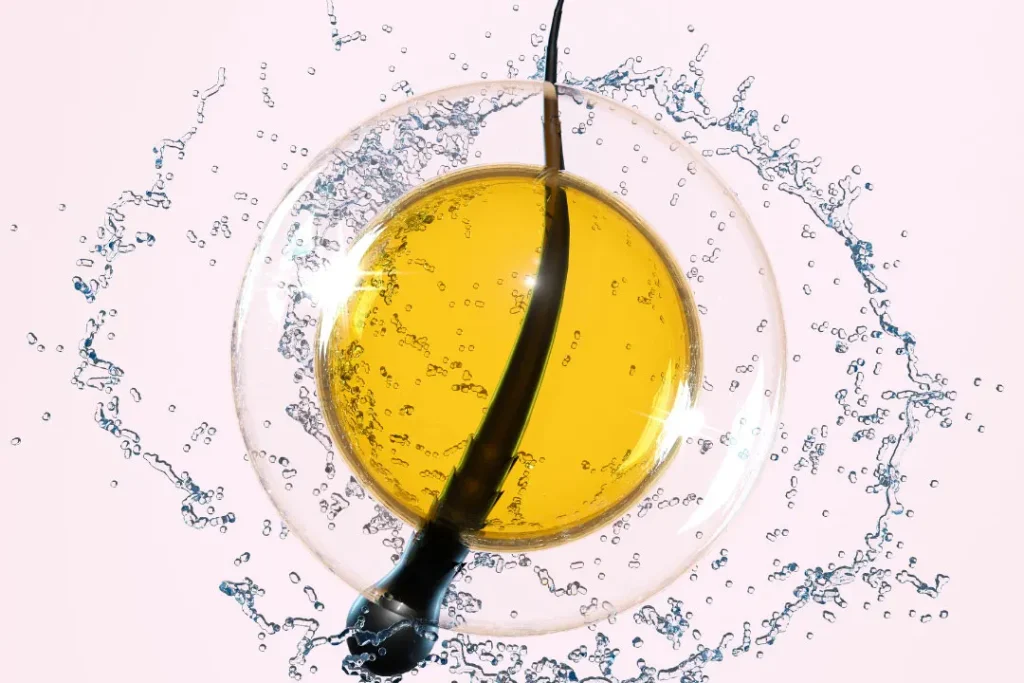
Drugs for thinning hair in men:
A flawed solution
While drugs like Minoxidil and Finasteride are effective for treating hair loss, they may not always be the best option. Finasteride is limited in its applications, and both have negative side effects that can outweigh their benefits. Hair transplants can also be effective, but only within a limited window, and after an invasive medical procedure. When it comes to hair loss treatments, drug- and surgery-free solutions are often preferable, even if Finasteride and Minoxidil are more common.
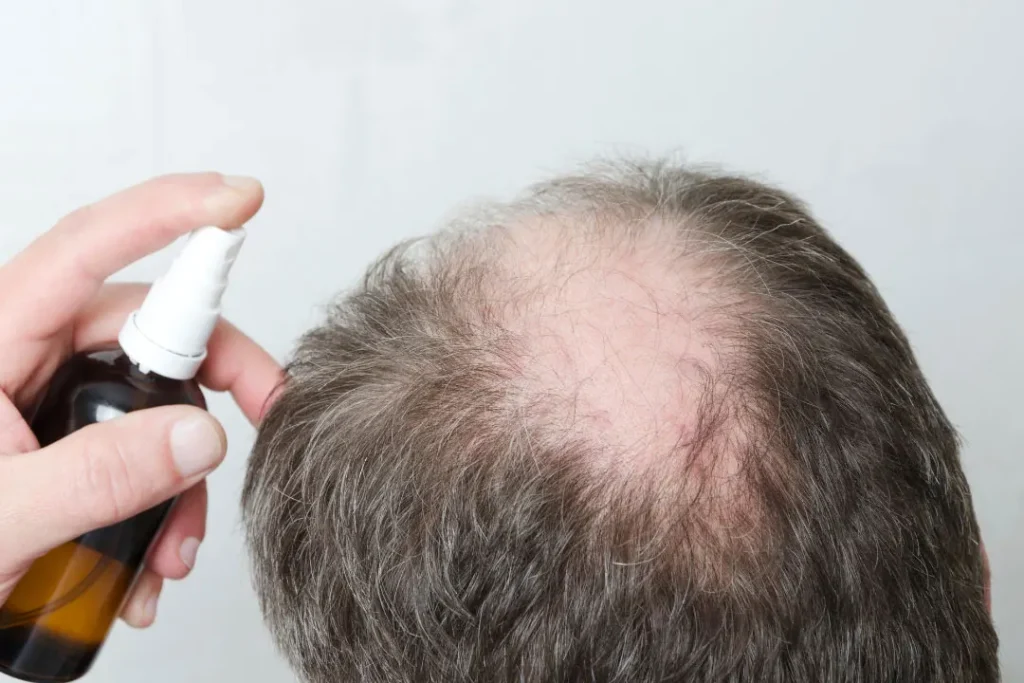
For further reference:
Northwestern Now: Stem cells lose their ‘glue’ and escape from hair follicle
Mayo Clinic: Stem Cells
NIH National Library of Medicine: Stem cells from human hair follicles
Important Note: The information contained in this article (5 Great Golden Milk Benefits in One Standout Health Supplement) is for general informational purposes only, and should not be construed as health or medical advice, nor is it intended to diagnose, prevent, treat, or cure any disease or health condition. Before embarking on any diet, fitness regimen, or program of nutritional supplementation, it is advisable to consult your healthcare professional in order to determine its safety and probable efficacy in terms of your individual state of health.
Regarding Nutritional Supplements Or Other Non-Prescription Health Products: If any nutritional supplements or other non-prescription health products are mentioned in the foregoing article, any claims or statements made about them have not been evaluated by the U.S. Food and Drug Administration, and such nutritional supplements or other health products are not intended to diagnose, treat, cure, or prevent any disease.

